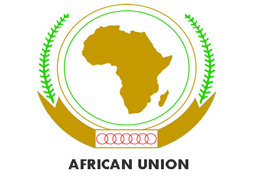
Stressing the potential of Africa to become a best place for its inhabitants, MPs quoted former president of South Africa, the late Mr Nelson Mandela who, according to them, said: "Africa suffers not from natural disasters but from human disasters, that is, man-made crises." MPs said poverty, joblessness, diseases and corruption, to mention a few of the problems that face the African continent, don't happen naturally but because of poor political leadership. "Leadership is vital on this continent if we are to realise the dream of Agenda 2063."
The leader of the official opposition, Mr Mmusi Maimane, said the vision of African Union 2063 is explained to be "an Africa at peace with itself, secure, corruption-free, with democratic and properly governed states run by an efficient and effective public service." He said: "If we want to help Africa succeed, we need to start right here at home. We have the ability to set the example for this continent."
Agenda 2063 is both a vision and an action plan. It is a call for action to all segments of African society to work together to build a prosperous and united Africa based on shared values and a common destiny.
In their 50th Anniversary Solemn Declaration, the heads of state and government of the African Union (AU), while acknowledging past successes and challenges, re-dedicated themselves to the continent's accelerated development and technological progress. They laid down their vision and eight ideals to serve as pillars for the continent in the foreseeable future, which Agenda 2063 will translate into concrete objectives, milestones, goals, targets and actions/measures. Agenda 2063 strives to enable Africa to remain focused and committed to the ideals envisaged in the context of a rapidly changing world.
Delivering a speech during the joint sitting, the Minister of International Relations and Cooperation, Ms Maite Nkoana-Mashabane, told MPs that Africa has undoubtedly transformed from where it was in 1963 when the Organisation of African Unity (OAU) was formed to chart a new path for Africa. She said in 2013 Africa celebrated the 50th anniversary of the OAU. "We looked back with measured satisfaction at the road we have travelled. But we also committed ourselves to doing more and better in the next 50 years," said Ms Nkoana-Mashabane.
She told MPs that in making that bold commitment, the leaders of governments of African countries at their May 2013 summit undertook to prepare a vision and road map of where Africa should be in 50 years, in the year 2063. "This vision, now consolidated into a framework document, is what we know today as Agenda 2063. What we are talking about is not a wish list but a carefully thought-out plan with identified drivers and an implementation strategy."
By Mava Lukani
31 October 2014

